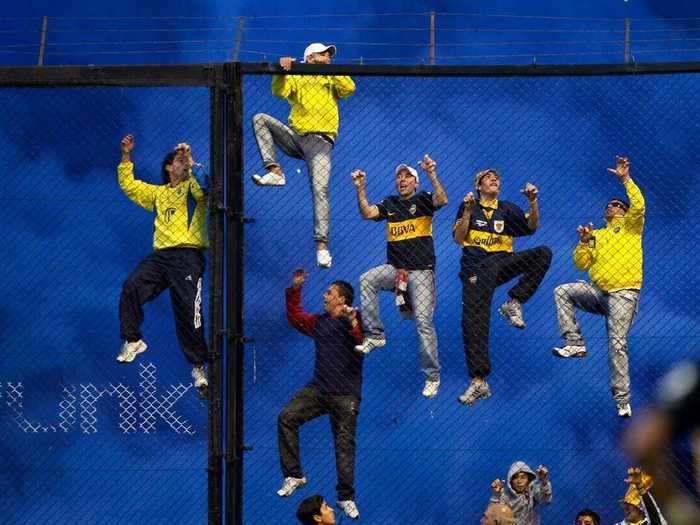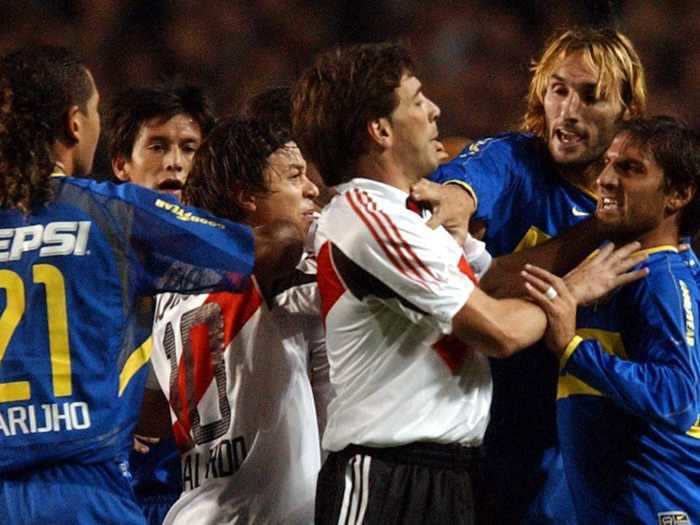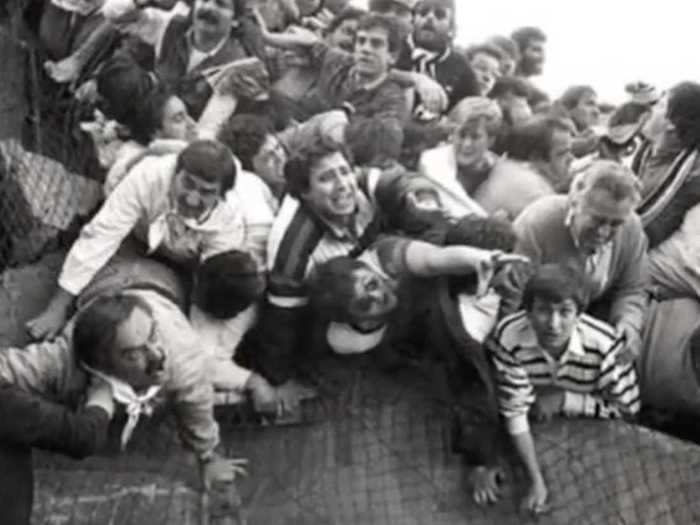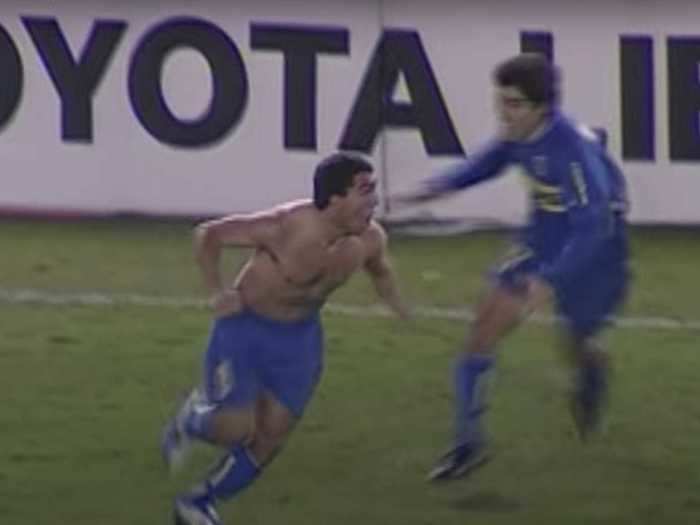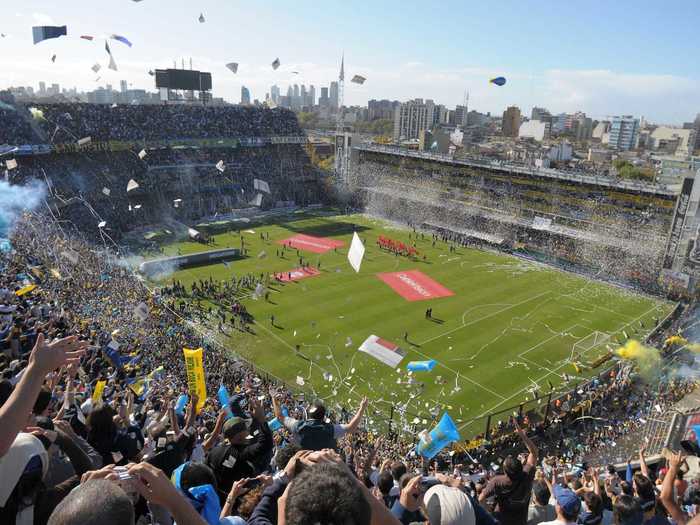Getty/Manuel Queimadelos Alonso
- Insider has been counting down and detailing the 10 fiercest rivalries in world soccer.
- In first place is River Plate versus Boca Juniors, also known as "The Superclasico."
- Read below about its history and why Insider has named it number one of its list.
- Keep up to date with the series here.
- Visit Insider's homepage for more stories.
Over the past few weeks, Insider has been counting down and detailing the 10 fiercest soccer derbies across the world.
We've crossed the globe, from Serbia to Scotland and from Rome to the Ruhr, over the last nine editions, and for our final hurrah we travel to Buenos Aires.
Here, in the Argentine capital, lies the biggest and baddest rivalry in world soccer — the Superclasico, River Plate versus Boca Juniors.
Read the original article on
Insider
A hatred deeper than most
Martin Mazur of El Grafico says, as per FourFourTwo: "A hundred years ago, [the Superclasico] was about working class vs aristocracy. Today it's just about hate.
"The on-pitch atmosphere reflects the 2,000 policemen that patrol the stadium: bust-ups, red cards (two per game is common) and controversy are part of the derby.
Attending a Boca-River game, especially at La Bombonera, is a once-in-a-lifetime experience. In the stands you can expect anything – from chicken feathers to flying pigs."
Read more:
Eurasia, a blood-soaked jersey, and Graeme Souness: Inside The Intercontinental Derby, the battle of the Bosphorus
Hard men, gravediggers, and the breakup of Yugoslavia: Inside The Eternal Derby, the war for Serbia's capital city
97 league titles, a halftime escape plan, and prison sentences: Inside the Uruguayan Clasico — Club Nacional vs. Atletico Penarol
A heated discussion
Name calling in this instance is light and playful. Burning down an opposition fans house however, is not.
That's what happened in 2018 prior the two side's first ever meeting in the Copa Libertadores finals.
According to Vice, a man identified only as Arturo was hosting his (at the time) brother-in-law, Oscar, ahead of the match when they became involved in a heated discussion as to who would win. Oscar subsequently set alight Arturo's house before disappearing. It is unclear whether he was ever caught.
—GOLAZO (@golazoargentino)
November 5, 2018Boca and River drew the first leg of the final 2-2, however the second leg was suspended due to River fans attacking the bus carrying Boca to the stadium with projectiles, breaking the windows and injuring some of the players, according to SB Nation.
The match was rescheduled, and eventually took place in Spain at Real Madrid's stadium, the Santiago Bernabeu, where River emerged as 3-1 winners.
The Puerta 12 tragedy
In June 1968 at River's El Monumental stadium, 71 Boca fans were killed and 150 more injured during a crush at one of the ground's exits.
After a scoreless draw, a number of fans attempted to leave the stadium via Gate 12, however the door was blocked, resulting in a fatal crush. Most of those who died were young, with an average age of 19.
No responsible party was ever identified, though their are claims the disaster occurred after Boca fans threw burning River flags from the upper tiers of the stadium, causing their own fans in the lower tiers to stampede out, according to Bleacher Report.
It remains the worst tragedy in the history of Argentine football.
Fans call each other "chickens" and "pigs"
Boca fans call River fans "gallinas" (chickens) because of their supposed lack of guts.
River fans on the other and call Boca fans "chanchitos" (little pigs) and "bosteros" (manure collectors), referring to the supposed bad smell of their stadium — La Bombonera — caused by a polluted river in La Boca.
It's also not uncommon for players to get involved in the name calling.
Boca icon Juan Roman Riquelme, who played for the club without wages for a whole year in 2009, has frequently been pictured holding signs reading "bosteros."
He also once said, according to FourFourTwo: "When I wake up, I can't put on anything red or white." Red and white are the colours of River's shirts.
Carlos Tevez, who has had three spells with Boca since 2001, once celebrated a goal in the Superclasico by doing a chicken dance in front of River fans, earning himself a red card, and sparking violent clashes in the stands.
The divide of the docks
Many of the other fiercest derbies in the world have a class divide rooted into their origins, but the Superclasico is the most poignant example.
Both clubs were formed in the docks of La Boca, a working class neighbourhood in Buenos Aires — River Plate in 1901 and Boca four years later by a group of Italian immigrants.
In 1925 however, River jumped ship (no pun intended) and relocated to Nunez, a more affluent suburb in the north part of the city.
After the birth of professional soccer a few years later, River then started spending big money on players, earning itself the nickname Los Millonarios (The Millionaires).
Humble Boca became known as the Xeneizes (Genoese) after its Italian ancestors, and thus the class divide between the two has since defined the two clubs' rivalry.

